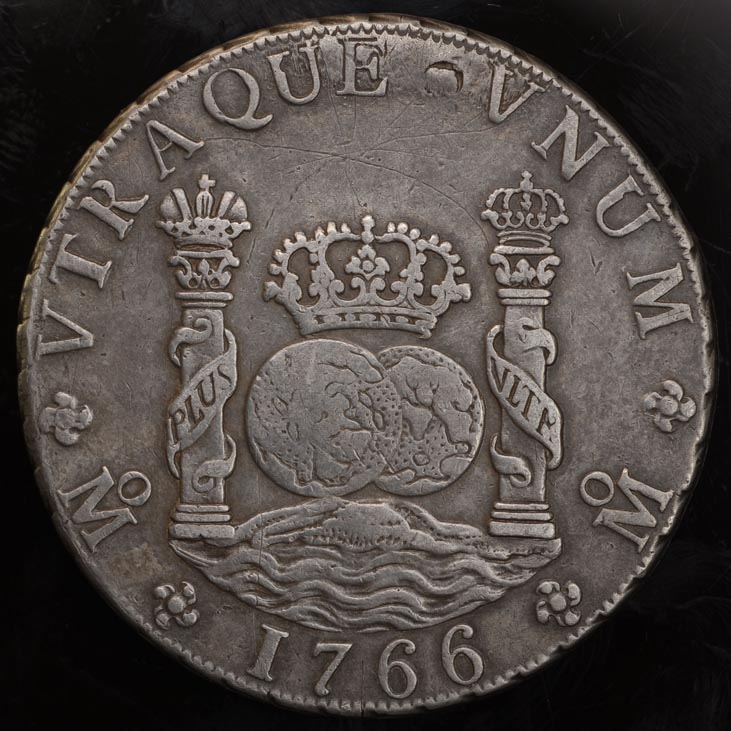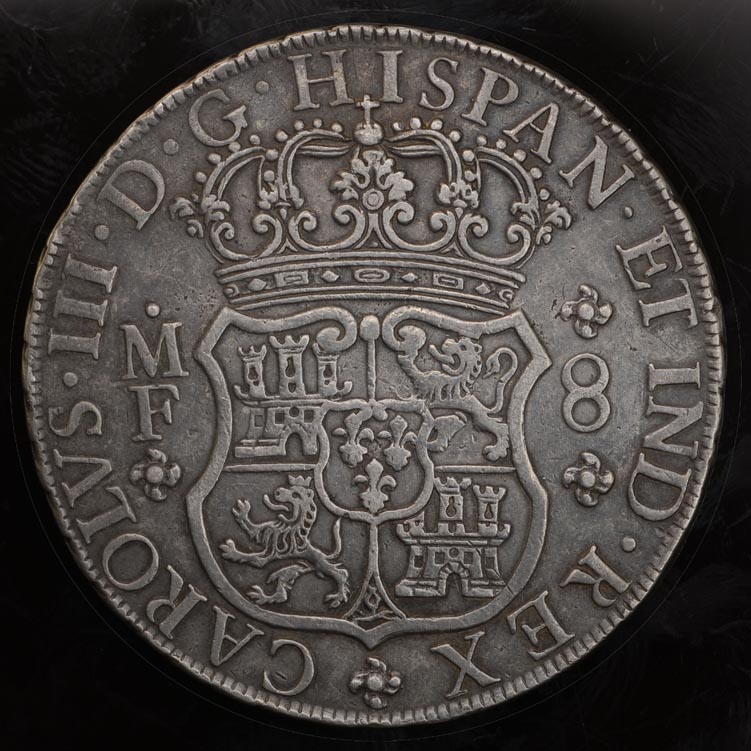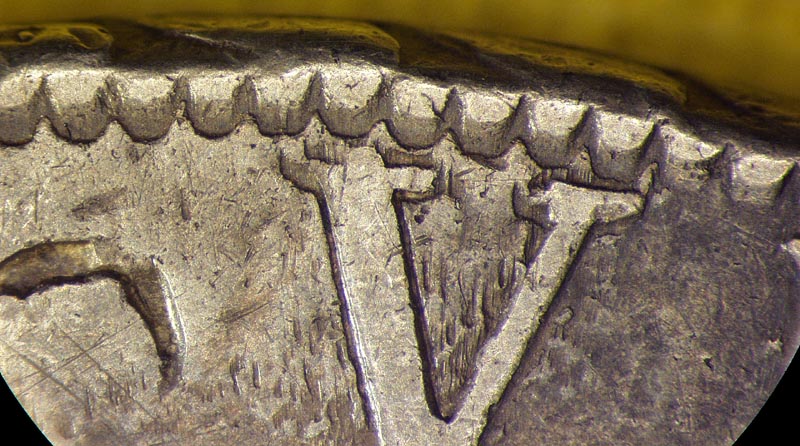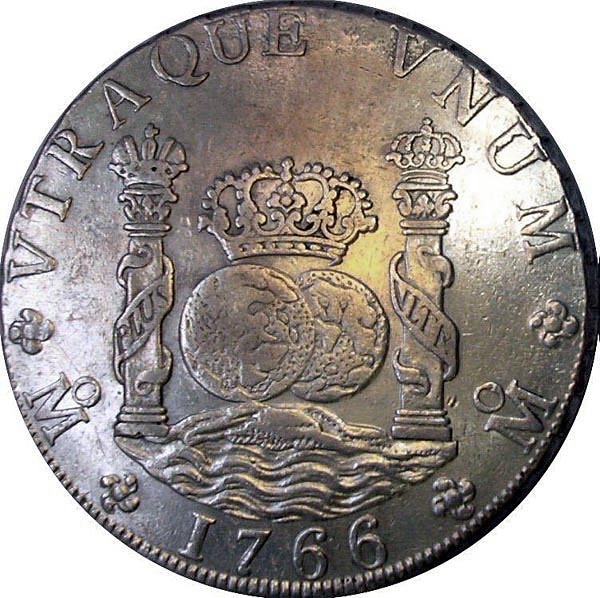This study investigates a
Spanish
colonial Pillar Dollar or 8 reales. These coins have long been faked
and
in-period counterfeits were also made. The coin's weight
and diameter are correct at 26.89 grams and 38.5 millimeters. The coin
is clearly a struck coin with typical flow mark details around the date
and letters, particularly near VTRA. The coin's wear and tear looks
natural.
But the coin holds at least one
mystery, excess metal on the pillar side between the letters E
and V of QUE -- VNUM. Further, the excess metal appears to have
occurred during the striking process when the coin was made, not added
later and not part of a casting process. The details of the excess
metal are described below. In addition to whether the coin is authentic
or not, the question
is what possible process could have formed the excess metal with its
peculiar shape?
Coin
(click
zoom
to
enlarge)

Rims
The rims have the typical
repeated flower pedal design of the period. The complete pattern is
made of two slightly misaligned half patterns each covering half of the
rim area. The alignment mismatch can be seen in the bottom image where
red and blue markers mark the individual design units, which are not
aligned with respect to each other. The direction of the petal units is
the same on both halves of the rim.

Excess metal
The excess metal runs from the
letter Q through the letter V and had several very
curious features.
The apparent hole between E and V is a void in the excess metal and does not continue into the planchet.
The upper edge of the excess metal is finely serrated forming a perfect inverse of the denticles along the rim.
The upper edge appears to have been shaped by a stricking process.
The thickness increases slowly from the sides to the center where it is even with the tops of the letters and the rim.
There are clear outlines around the letters which again show evidence of striking.

Magnified

Magnified again

Other Examples
A search of the internet for
other 8 reales from the Mexico City mint dated 1766 yielded interesting
results. Out of about 10 or 15 higher resolution images
found, two other coins show signs of the same anomaly. In the
first example, the feature appears to be in the early
stages of developemnt and in the second example the feature is more
developed like in the coin under study. In all three examples, the
features share common detail
suggesting they are from the same die.

